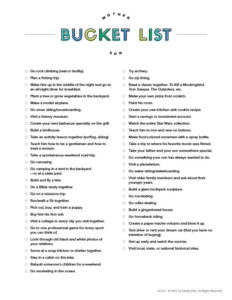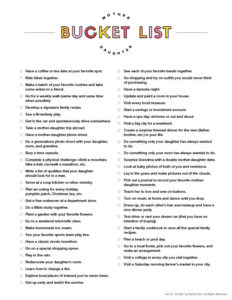“Have you checked on Ava recently?” I asked my eighth grader. “No. Why should I?” my daughter questioned with the tone of an eye roll. “I’m tired of always being the one to reach out. She can text me for a change.” Oof. Ava’s parents recently divorced, and I knew Ava needed her friends now more than ever. But first, my daughter needed some coaching from me to get off the bench and offer support.
My kid isn’t unique. Most tweens and teens struggle to express empathy and need our guidance to jump adolescent hurdles tripping them up. Get to know these 5 common barriers your teen faces and how to use practical empathy activities for middle schoolers and high schoolers to help your child overcome them.
1. The Pressure to Fit In
Teenagers are hungry to fit in with their peers. (Judging by their color-coordinated 40-oz tumblers, they’re pretty thirsty, too.) The same pressure to fit in that leads to them carrying around matching cups can prevent a teen from being around peers who have diverse experiences and perspectives. Plus, their compulsion to conform to peer expectations can stifle their ability to understand and share in the feelings of others.
What’s a mom to do? Encourage open conversations about the importance of empathy and model empathetic behavior toward her, such as actively listening, forgiving one another, and offering comfort when your teen needs it. By fostering an environment and relationship with you where empathy is valued and practiced, you can help your teenager build the confidence to stand out and show genuine kindness, despite peer influence.
2. The Self-Absorption Stage (Psst—it’s totally normal!)
Your teen’s brain is still growing. During adolescence, the brain goes through a developmental stage focusing on the self. (So, yes, many teens do appear selfish.) As teenagers concentrate intensely on their identities and experiences, they may struggle to recognize and respond to the feelings and needs of others. They’re focused inward and super worried about how others perceive them, rather than outward-focused and concerned about how others might feel.
What’s a mom to do? You can help your teen overcome this barrier by encouraging self-awareness
3. The Decrease in Face-to-Face Interactions
Face-to-face interactions involve body language, facial expressions, and tone of voice, all crucial for understanding another person’s emotions. But “reading the room” gets harder when you aren’t actually in the room. And, since most teens rely heavily on digital communication, your teen may receive limited practice in building and refining those empathetic abilities.
What’s a mom to do? While scheduling a playdate isn’t one of those go-to empathy activities for middle schoolers, it’s exactly what your teen needs. (Just don’t call it a playdate!). Instead, offer to order pizza or subs for a study session or movie night with friends. Or encourage your teen to head to his school’s football game on Friday, join that school club, or volunteer at church.
4. The Empathy Fatigue
With constant online exposure, adolescents can become desensitized to distressing news and images. Plus, teens are still learning about setting and maintaining emotional boundaries. And they may often struggle with knowing what is and isn’t theirs to feel or fix. This can leave your teen feeling exhausted and overwhelmed, making it hard to care as much as he normally would.
What’s a mom to do? Increase face-to-face time with him through one-on-one dates (like these for
5. The Still-Developing Emotional Regulation Skills
Teens are still developing their emotional regulation skills, which can make it challenging for them to manage their own emotions while also empathizing with others. Before understanding someone else’s perspective, a teen must feel seen, understood, and heard.
What’s a mom to do? Of all the empathy activities for middle schoolers and high schoolers, showing empathy toward your teen might be the most impactful. A longitudinal research study from the University of Virginia found that moms can pass empathy to their teens. “What we found was that mothers’ empathy for their teens at age 13 predicted that teen’s empathy for their friends across the adolescent years,” lead author Jessica Stern, a developmental psychologist, said. Showing your child empathy can look like listening without jumping immediately into “fix it” mode or it can involve being fully present (and awake) for a late-night talk.
Which empathy activities for middle schoolers do you find help your teen overcome the common barriers above?










